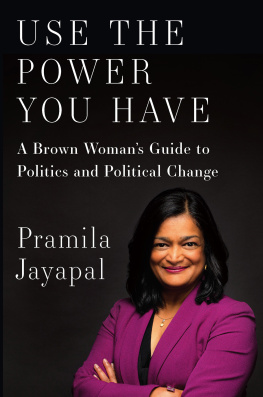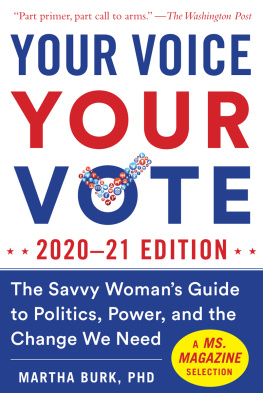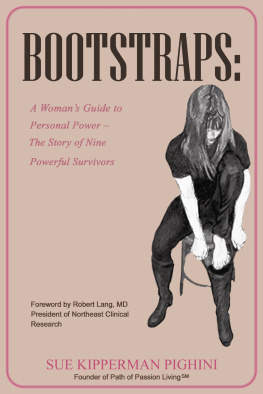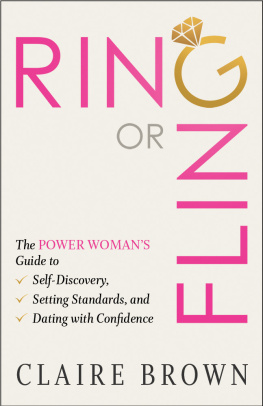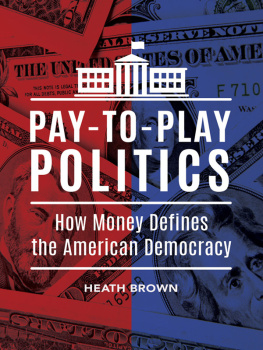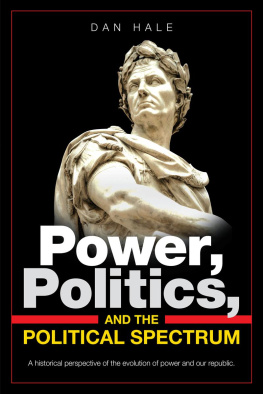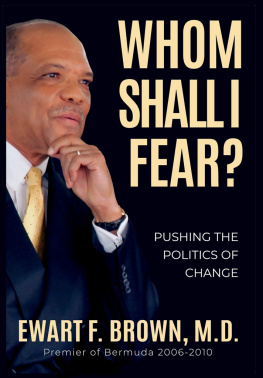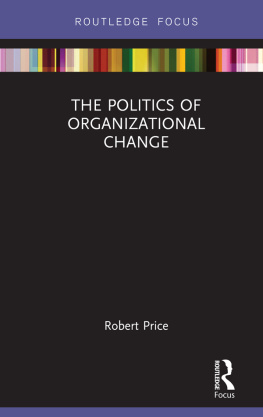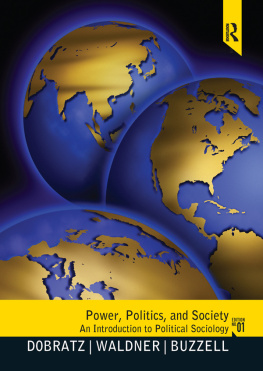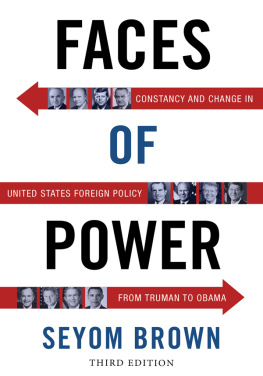Pramila Jayapal - Use the Power You Have: A Brown Womans Guide to Politics and Political Change
Here you can read online Pramila Jayapal - Use the Power You Have: A Brown Womans Guide to Politics and Political Change full text of the book (entire story) in english for free. Download pdf and epub, get meaning, cover and reviews about this ebook. year: 2020, publisher: The New Press, genre: Politics. Description of the work, (preface) as well as reviews are available. Best literature library LitArk.com created for fans of good reading and offers a wide selection of genres:
Romance novel
Science fiction
Adventure
Detective
Science
History
Home and family
Prose
Art
Politics
Computer
Non-fiction
Religion
Business
Children
Humor
Choose a favorite category and find really read worthwhile books. Enjoy immersion in the world of imagination, feel the emotions of the characters or learn something new for yourself, make an fascinating discovery.
- Book:Use the Power You Have: A Brown Womans Guide to Politics and Political Change
- Author:
- Publisher:The New Press
- Genre:
- Year:2020
- Rating:3 / 5
- Favourites:Add to favourites
- Your mark:
- 60
- 1
- 2
- 3
- 4
- 5
Use the Power You Have: A Brown Womans Guide to Politics and Political Change: summary, description and annotation
We offer to read an annotation, description, summary or preface (depends on what the author of the book "Use the Power You Have: A Brown Womans Guide to Politics and Political Change" wrote himself). If you haven't found the necessary information about the book — write in the comments, we will try to find it.
Pramila Jayapal: author's other books
Who wrote Use the Power You Have: A Brown Womans Guide to Politics and Political Change? Find out the surname, the name of the author of the book and a list of all author's works by series.
Use the Power You Have: A Brown Womans Guide to Politics and Political Change — read online for free the complete book (whole text) full work
Below is the text of the book, divided by pages. System saving the place of the last page read, allows you to conveniently read the book "Use the Power You Have: A Brown Womans Guide to Politics and Political Change" online for free, without having to search again every time where you left off. Put a bookmark, and you can go to the page where you finished reading at any time.
Font size:
Interval:
Bookmark:

More Praise for
Use the Power You Have
Use the Power You Have isnt just the story of the remarkable journey of Congresswoman Pramila Jayapal, although her sincere telling is an inspiration in itself. This book is a blueprint for women of color who are ready to seize the moment, build with movement, lead with heart, and create a just country and world.
Aimee Allison, founder and president, She the People
This book is a rare treat: a look into the mind and heart of one of the most inspiring political figures in our landscape today.
Ilyse Hogue, president, NARAL Pro-Choice America
This hopeful book not only chronicles an immigrants political successes, but, more significantly, the enduring faith in American democracy that inspired them. A passionately articulate memoir and political manifesto.
Kirkus Reviews
USE THE POWER YOU HAVE
USE THE
POWER
YOU HAVE

A BROWN WOMANS GUIDE TO POLITICS AND POLITICAL CHANGE
PRAMILA JAYAPAL

For my parents:
Boundless gratitude, across continents
for everything
Contents
USE THE POWER YOU HAVE
Part I
POLITICS
My Immigrant Story
A FRIEND OF MINE SAYS THAT WE IMMIGRANTS LIVE IN THE HYPHEN: we live in the space between the places we bring with us and the places we go, in that complex space of change. And if there is one thing that is true about migration, it is that everything and everyone who is touched by it changes. Our collective experiences as immigrantswilling and unwilling, brought over on slave ships to build this country or traveling across deserts to seek refugehave shaped a nation on territory solely inhabited by indigenous peoples who had the only real claim to the land.
Migration and immigration do not just affect the United States. They are worldwide phenomena, brought about by the increasing ravages of climate change, inequality, poverty, and war. We are a global people of movement. Today, an estimated 258 million people live in a country other than the one where they were born.
Like so many generations of people from all over the world who have come to America, my immigrant experience has shaped me.
I was born in India, and then lived with my family mostly in Indonesia. I finished my high school education at an international school with a large percentage of American teachers. At the time, my father worked for an American oil company and had caught his own American fever: unlike many of his Indian colleagues whoas products of a colonial empire, loved the United Kingdomhe truly believed that the United States was the place where his daughters would get the best education and have the most opportunity. Using most of his meager savings, he first sent my older sister, Susheela, to the United States. His intent was to send me as well, but in the three years between Susheelas departure for America and mine, he lost his job and whatever he had left in savings became even smaller. Much of my senior year of high school was spent worrying that I would not be able to follow my sister to America. But my parents were determined. They sacrificed everything so that, in 1982, a few months before my seventeenth birthday, I arrived in America with the two suitcases allotted to me by the airline.
I still remember arriving alone at JFK airport and being amazed at the grandiosity of the place and the strangeness of it all: a couple kissing passionately in a public display of affection like I had never seen before; the smell of french fries from McDonalds, which still had not made it to Indonesia; the bustle of a population that looked so different from the people of the countries in which I had lived.
I had applied and been accepted to Georgetown University without the luxury of a visit or even much knowledge other than it was in Washington, DC, and had a good number of international students. That first year was a study in anxieties: what should I wear? Collar inside my sweater or outside? Would people know I was a foreign student? What were the prevalent TV show and pop culture references? I tried to blend in as best I could, but I constantly mixed up common phrases. It wasnt until I got to business school six years later, to the amusement of my friends, that I found out the phrase I thought was doggy-dog world was actually dog-eat-dog world!
In retrospect, my entry into America was incredibly privileged compared to so many of those I would later work with through the course of my immigrant rights work. I was on a student visa, I spoke fluent English, and I was not completely new to American culture, given my international school education in Indonesia. Still, I was far away from my parents, with money to call home only once a year, and I was homesick.
My first week of college, I decided to combat the homesickness with a reminder of home: I walked into town and bought a beautiful poster of the Taj Mahal to pin on the wall of my dorm room. My next-door neighbor, who came from a very wealthy family, came in and excitedly asked if it was a picture of my house. I honestly thought she was joking, so I decided to joke back. Thats just the servants quarters, I said. The house is too big to fit on there. To my complete amazement, she believed me! Oh my goodness, she said. Are you a princess? It was beginning to occur to me that she thought I was serious, but it was too good a prank to let the opportunity go. Yes, I said modestly. I am a princess but I dont like people to know that. She left and I laughed myself to sleep. Some days later, I was at a party and as I was introducing myself, the person said in awe, Youre the real live Princess Pramila!
That was when I realized that many people in the United States really didnt know much about the rest of the world. In Indonesia, my friends were from everywhere: what was then Yugoslavia, Turkey, Japan, Mexico, Kenya, and across Europe and the United States. My parents spoke multiple Indian languages, and my mother was learning German as we were growing up. At school, I took both Bahasa Indonesia (the language of Indonesia) and French as an elective. Most of my friends spoke languages other than English. Places on the big globe that rotated around in our world history class felt near and relevant. It made the whole world seem so small and familiar. America was relevant to everyone else in the world, it seemed, but the rest of the world didnt seem that relevant in Washington, DC.
America!
I found a friend living on the floor below me who was from New Orleans and we made a pinkie pact that when the first snows fell, we would find each other to share our first sighting together. When that moment came, we ran out with no shoes or gloves or hats, caught snowflakes on our tongues and made angels in the snow. We were completely and totally enthralled by the white blanket that covered the Georgetown steeples.
Every Sunday, I sat down to dutifully write to my parents. For school breaks, I would either go to visit one of my aunts who lived in Maryland and Ohio, respectively, or I would go to my best friends house just half an hour from Georgetown. Her family was a wild and welcoming Irish Catholic family with six girls and a cooking fiend of a mother; they welcomed me in completely, like another daughter. In the midst of the family cacophony around a Washington NFL football game and a heaping table of food, I tried to forget that it still wasnt home.
Next pageFont size:
Interval:
Bookmark:
Similar books «Use the Power You Have: A Brown Womans Guide to Politics and Political Change»
Look at similar books to Use the Power You Have: A Brown Womans Guide to Politics and Political Change. We have selected literature similar in name and meaning in the hope of providing readers with more options to find new, interesting, not yet read works.
Discussion, reviews of the book Use the Power You Have: A Brown Womans Guide to Politics and Political Change and just readers' own opinions. Leave your comments, write what you think about the work, its meaning or the main characters. Specify what exactly you liked and what you didn't like, and why you think so.

